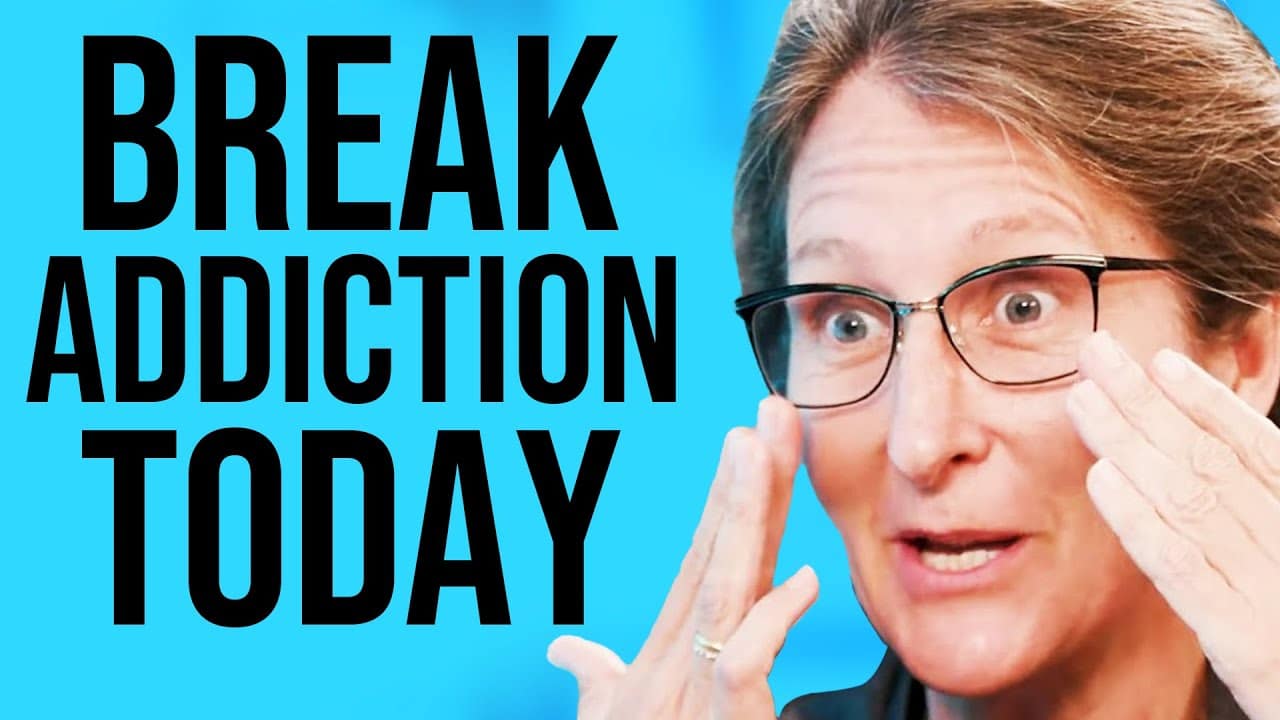*****
Summary of Transcript:
The video features an interview between two individuals discussing dopamine, addiction, and the positive side of seeking. The interviewee, Anna Lemke, wrote a book called “Dopamine Nation,” which explores the role of dopamine in addiction. However, the interviewer takes a different approach and discusses the positive aspects of dopamine and seeking. They discuss how seeking is a natural human behavior and can be an important source of motivation but emphasize the importance of pursuing worthy goals. They also discuss the idea of intrinsic reward and giving oneself credit for sincerely pursuing goals, even if success is not guaranteed.
*****
Summary of Description:
Anna Lembke, a professor of psychiatry at Stanford University, and Tom Bilyeu explore the dangers of using dopamine reward-seeking as a drug of choice to pursue ever-elusive rewards. They discuss the pleasure-pain balance and how too much pleasure and positive overload can be stressful. They also touch on topics such as cannabis use, pornography addiction, spirituality in neurochemistry, and social media validation. Lembke advises seeking long-term solutions instead of quick fixes to deal with pain or stress.
*****
Why Pursuing Dopamine Rewards Can Be Dangerous
Introduction
In this episode of Impact Theory, Anna Lembke, a professor of psychiatry at Stanford University School of Medicine and an addiction medicine dual diagnosis clinic expert, joins Tom Bilyeu to explore the science behind dopamine receptors and how they drive the human love for pursuit.
Pursuit is Rewarding
Anna Lembke explains that humans are naturally wired to approach pleasure and avoid pain. This mechanism is primarily driven by dopamine receptors in the brain that provide rewards for pursuing happiness. However, in the digital age, this motivation can lead to an obsession with dopamine hits, which can prove dangerous.
Dopamine Insensitivity
Anna Lembke warns that an overdose of dopamine can decrease dopamine receptors in the brain, leading to dopamine insensitivity. This can result in losing interest in life activities, low motivation, and depression.
Pleasure Pain Balance
Anna Lembke cautions that the pleasure-pain balance is delicate, and excess positive overload can also lead to stress. Biologists define stress as a deviation from neutrality, which can lead to anxiety, depression, and physical pain.
Dopamine Reset
Anna Lembke advocates for dopamine resets, which involve abstaining from dopamine-hit activities to allow the brain to recalibrate and increase dopamine sensitivity.
Cannabis Use and Potency
Anna Lembke explains that cannabis potency has significantly increased in recent years, leading to an increased risk of addiction, delusions, and hallucinations. She recommends that people take cannabis products with care and moderation.
Pornography Addiction
Anna Lembke warns against pornography addiction, which can lead to decreased motivation, increased anxiety, and depression. She suggests that individuals struggling with addiction seek professional help.
Truth Telling Reward
Tom Bilyeu observes that being honest and truthful with oneself can provide rewards as potent as dopamine rewards. By being open about their weaknesses and strengths, individuals can take productive steps toward achieving their goals.
Spirituality in Neurochemistry
Anna Lembke explains that religious and spiritual experiences can lead to changes in neurochemistry, much like the effect of dopamine receptor activities. However, she cautions against using spirituality as a drug of choice, as it can have dangerous consequences.
Social Media Connection
Anna Lembke warns that social media can provide a false sense of validation and connection, leading to addiction. She advises users to seek confirmation from real-life relationships and activities.
To Exert Will or Not
Tom Bilyeu emphasizes the importance of the will to succeed in life and take control of one’s motivation levels. Anna Lembke cautions against over-exerting one’s will, which can lead to stress and exhaustion.
Danger in Striving
Anna Lembke sums up the episode by advocating the importance of balance in life activities. Pursuing dopamine rewards excessively can lead to an obsession that can be dangerous. Thus, individuals should strive for balance, moderation, and mindfulness.
Join the Discord Community
Don’t miss out on all the amazing things we are working on – Join the Impact Theory Discord community today to get direct access to Tom and his team. You’ll also get exclusive content and offers to help you become legendary.
*****
Source Description
Join our Discord community so you don’t miss out on all the amazing things we are working on – http://impacttheory.com/discord. Here you will get direct access to Tom and the team PLUS exclusive content, offers, and so much more. Jump on in and get started on becoming legendary!
Suppose you were born in the digital age of technology; electronic devices and social media started directly or indirectly affecting your life. Since birth, dopamine receptors in your brain have been firing off to keep you alive, motivated, and focused on pursuing something worthwhile. Suppose you easily start feeling like you’re not enough, something is missing, or you should be doing more than you are.
Anna Lembke is a professor of psychiatry at Stanford University School of Medicine and chief of the Stanford Addiction Medicine Dual Diagnosis Clinic. She writes, “Humans are the ultimate seekers.” Because of the way we are wired with the flood of hormones and chemicals released physiologically, we are always looking for the next dopamine hit without ever consciously identifying and labeling it. So, if pursuing an ever-elusive reward is in your nature, what reward do you focus on?
In this episode, Anna and Tom explore why using the love of the pursuit as a drug of choice to get dopamine rewards can be very dangerous. Anna also explains the pleasure-pain balance and why too much pleasure and positive overload are still a form of stress to watch out for.
Order Anna Lembke’s book, Dopamine Nation, Finding Balance in the Age of Indulgence: https://www.amazon.com/gp/product/152474672X?tag=randohouseinc7986-20
SHOW NOTES:
0:00 | Introduction to Anna Lembke
1:00 | Pursuit is Rewarding
10:12 | Dopamine Insensitivity
16:17 | Pleasure Pain Balance
26:24 | Dopamine Reset
29:21 | Cannabis Use & Potency
34:07 | Pornography Addiction
39:56 | Truth Telling Reward
50:38 | Spirituality in Neurochemistry
59:05 | Social Media Connection
1:12:16 | To Exert Will or Not
1:25:10 | Danger in Striving
QUOTES:
“We are hardwired to approach pleasure and avoid pain. And that’s really at the heart of our dopamine reward system.” [7:50]
“Any deviation from neutrality is a form of stress. Biologists define stress as a deviation from neutrality.” [18:33]
“The richest countries in the world are the countries that have the most suicide, anxiety, depression, and physical pain.” [24:22]
“Because our primitive brains were not wired for an easy, hyper-convenient world, we are suffering due to all this access to these feel-good things.” [25:10]
“If social media is the main place or the only place where you get validation and feel connected, that’s dangerous.” [1:06:55]
“Don’t do the easy thing to get rid of the pain; far better to suffer and come up with a long-term solution” Tom Bilyeu [1:08:45]
“The interesting part here is it isn’t winning a championship; it’s becoming capable of a championship performance.” Tom Bilyeu [1:26:34]
Follow Anna Lembke:
Website: https://www.annalembke.com/



Comments are closed